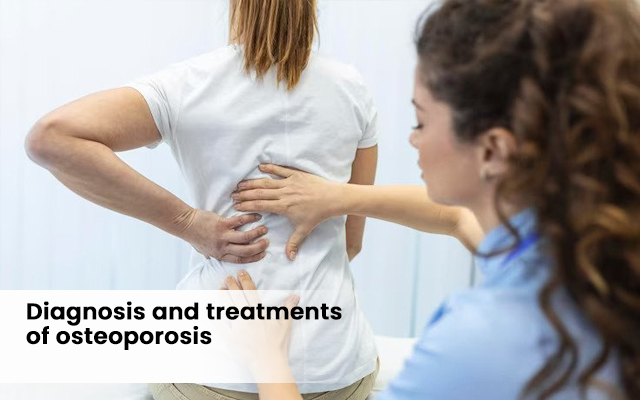Osteoporosis makes the bones brittle and weak. As a result, mild stresses like coughing and bending, and falls can lead to a fracture. Such fractures mainly occur in the spine, hip, and wrist. Below, the top orthopedician in South Kolkata has discussed some signs of osteoporosis along with its diagnosis and treatments.
Symptoms:
Usually, there are no noticeable symptoms in the early stages of osteoporosis. However, once your bones have started to weaken, you might notice the following symptoms.
- Back pain caused by a collapsed or fractured vertebra
- Persistent fractures
- Stooped posture
- Loss of height over time
Diagnosis:
To check whether or not you have osteoporosis, your doctor will review your medical history and perform a physical examination. They might also run a blood and urine test to diagnose conditions contributing to bone loss.
If your doctor suspects that you have osteoporosis or in case you are at risk of developing the condition, they will recommend a bone density test. This examination is also known as bone densitometry, and it is done by using X-rays to measure the bone density in your spine, wrists, and hips. Generally, these are the top three areas targeted by osteoporosis.
Treatments:
The best orthopedic doctors in South Kolkata have listed below the treatments for osteoporosis.
- Medications: The most common medications that are used to manage and treat osteoporosis are hormone therapies, like testosterone or estrogen and bisphosphonates. People who have severe osteoporosis might require certain medications like denosumab, romosozumab, and analogs. These medications are usually given in the form of injections.
- Mineral and vitamin supplements: To strengthen your weak bones, you might need to have a prescription or over-the-counter mineral and vitamin D supplements. Your doctor will advise you regarding which kind of supplements you need, along with their dosage.
- Exercise: Doctors recommend exercising regularly to strengthen the bones. Weight-bearing exercises especially help to make your muscles strong. Yoga and walking are also low-impact exercises that do not put much strain on your bones. At times, orthopedic doctors also suggest physiotherapy to help you figure out the right movements and exercises for you.
As osteoporosis progresses, bones become more fragile, putting one at risk of getting multiple fractures. This can result in ongoing pain and loss of posture as bones present in the spine begin to collapse. Older individuals who get hip fractures require a longer time to recover properly, which in turn, can compromise their ability to remain independent. Hence, it is important to consult the top orthopedician in South Kolkata and receive timely diagnosis and treatment to prevent complications.

